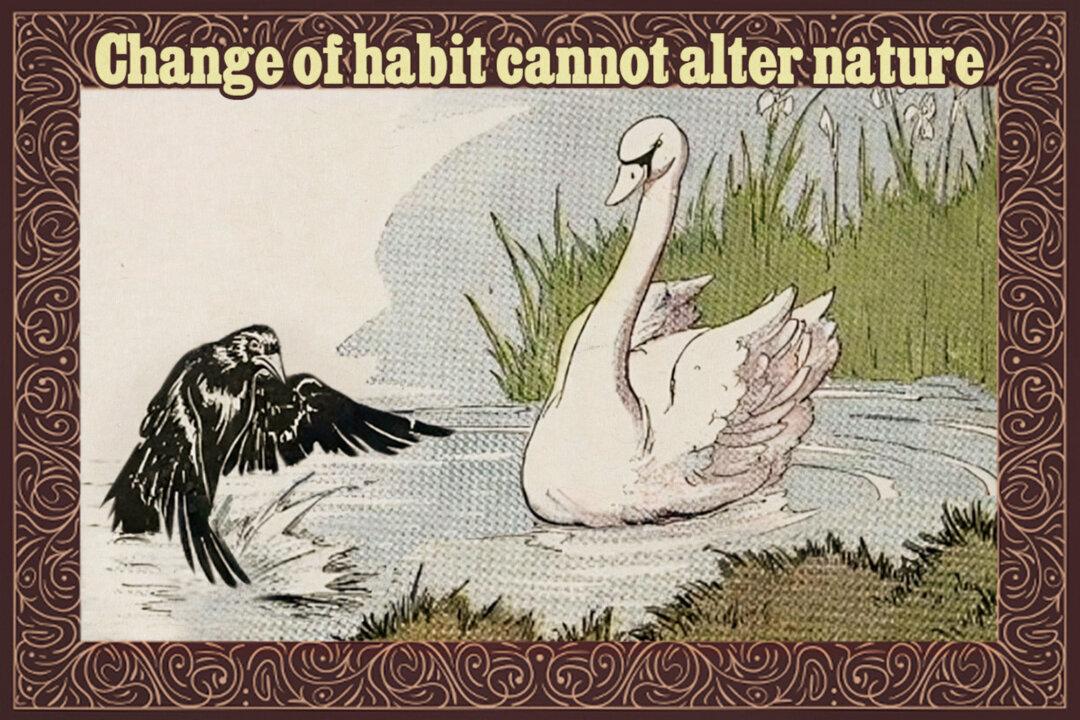A Raven, which you know is black as coal, was envious of the Swan, because her feathers were as white as the purest snow.
The foolish bird got the idea that if he lived like the Swan, swimming and diving all day long and eating the weeds and plants that grow in the water, his feathers would turn white like the Swan’s.






